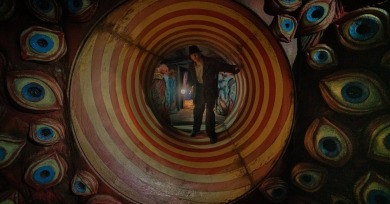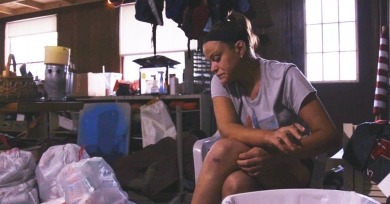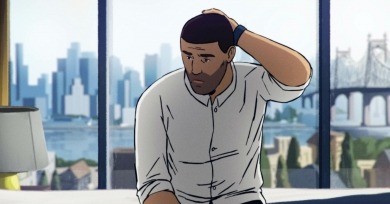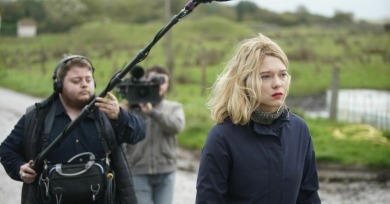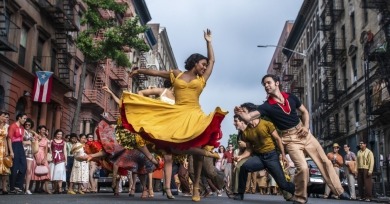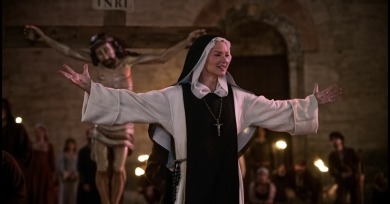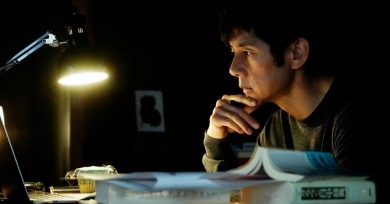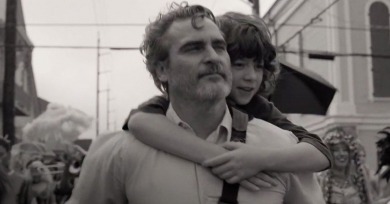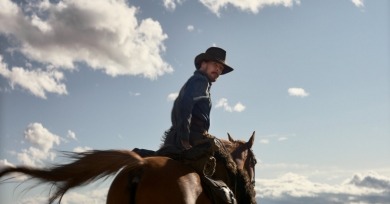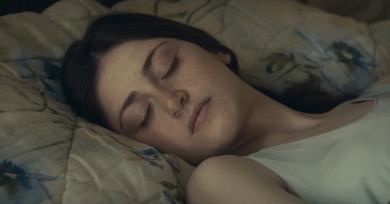Reviews
The older film is often classified as a noir (even though it is lacking some of the tropes and visual signifiers of that pseudo-genre), which del Toro has taken as an excuse to stuff his version with constant cigarette smoking and monsoon-like rainfall in his usual literal and immoderate fashion.
The film is brave, generous, and vulnerable about how often and how long queer people have to negotiate with concepts of childhood and home, and how they carry the loaded, weighted sense of dread, painful memories, and regret among their families.
Dumont presupposes Seydoux’s purpose: she cries, we feel. But tears are tricky things, and like the central problem of news and entertainment, we are never sure if her sorrow is true or false.
For all the adaptations and revisions that have existed over the decades, Spielberg and Kushner approach the material with sensitivity and an interest in richly expanding its characters that is nothing short of remarkable.
Red Rocket offers not a treatise against toxic masculinity, but an embodiment of it, eschewing grand statements that point back to its own topical import in favor of studying a singular character who boasts all of its worst traits with a shameless, belief-beggaring entitlement.
Benedetta engages in the Evil of All Evils that is lesbian sex, but she raises a good point when she asks who determines the will of God. Her self-realization, her will to power, as it were, is the recognition of the system’s mutability, beholden as it is to hilariously archaic and arbitrary codes.
The overlapping bonds that come into focus in The Humans are defined as much by gentle, deep-seated affection as by private griefs, infuriating fallibilities, and past brushes with the void around whose edge so many of us, save for the most privileged, are perpetually circling.
When you adapt a book into a movie it is more about transcribing the emotions you felt when you first read the text.
Defining (and redefining) contemporary fascism may be a losing game, but identifying the destructive forces of moral conservatism remains as depressingly easy as ever. Another thing that remains vivid: the misogyny at the corrupt core of modern patriarchal life.
Despite Mills’s best efforts, his fussed-over films can teeter into preciousness, especially in the concluding reunions and resolutions that cohere a little too neatly. Patness isn’t exactly the problem in C’mon C’mon—its ending is actually one of the more open-ended in Mills’s filmography—as much as its dubious blending of fact and fiction.
The viewer may anticipate a contest between Phil and Rose for the boy’s heart and mind, a kind of moral tug-of-war, and Rose’s physical deterioration as her son’s fortitude develops enhances the misdirection. But in the end, it’s Peter’s conception of masculinity, as encapsulated in the film’s opening voiceover, that prevails.
What Do We See? operates like a kind of benevolent human magic: it splits our attention between two poles, one natural, the other personal, between the coherent order of the natural spectacle and the driving personality behind it.
Everybody is the victim of a patriarchal, homophobic, and capital-driven society. It might sound terrifying or hilarious, depending on the point of view, but The Beta Test sends a plausible message: people are now just scrapeable data.
